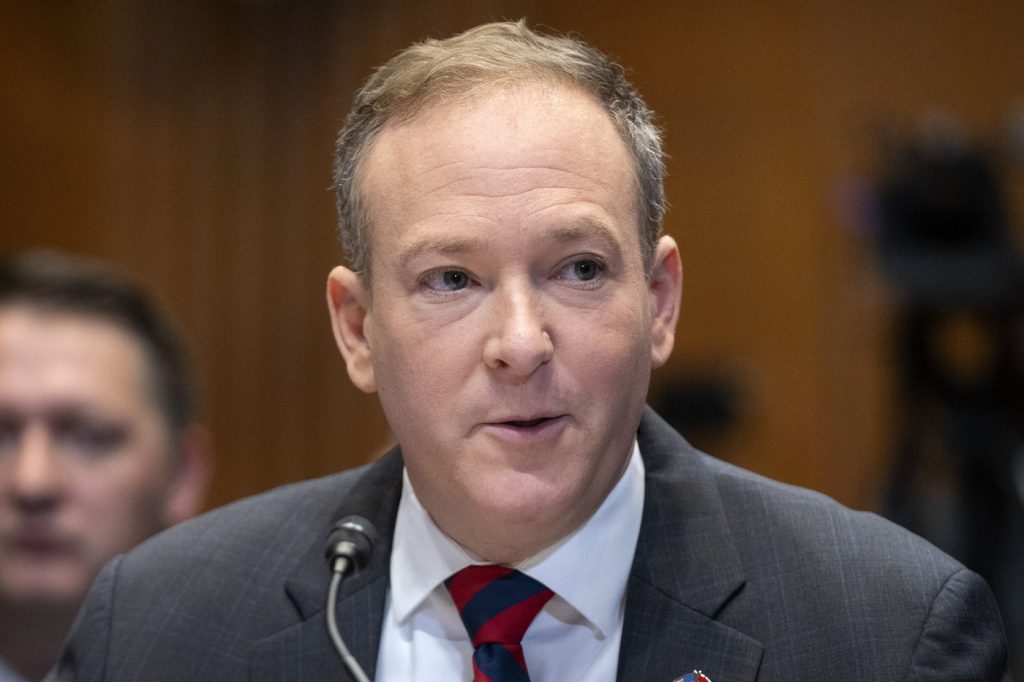The Environmental Protection Agency (EPA) has recently terminated grant agreements worth $20 billion that were issued by the Biden administration, which were designed to fund clean energy and climate-related projects through a program known as the green bank. This decision follows a prior freeze on the grants initiated by the EPA, which is headed by Administrator Lee Zeldin, who has labeled the scheme as a “gold bar” initiative rife with conflicts of interest and potential fraud.
In a video shared on Tuesday night, Zeldin criticized the allocation of taxpayer funds, claiming that “$20 billion of your tax dollars were parked at an outside financial institution” to avoid government oversight. According to Zeldin, the funds were being distributed through eight politically connected and allegedly unqualified nonprofit organizations.
Zeldin expressed serious concerns about the integrity of the grants, asserting that they posed significant risks and were not in alignment with the agency’s priorities. He noted that terminating the grants was essential to mitigate waste and enhance oversight in the funding process.
The termination of these grants comes amid ongoing legal challenges, as three of the nonprofit organizations that had received funding filed lawsuits against the EPA in response to the grants’ freeze. These groups, including Maryland-based Climate United Fund, claimed that the actions taken by the EPA and Citibank denied them access to $7 billion they were awarded last year through the Greenhouse Gas Reduction Fund. This program, established by the Inflation Reduction Act of 2022, is intended to finance initiatives that combat climate change.
Climate United Fund stated that the freeze jeopardized their operations, affecting their ability to provide loans and pay employees. Meanwhile, two other nonprofits, the Coalition for Green Capital and Power Forward Communities, shared similar frustrations and have also filed lawsuits against Citibank for improperly freezing an additional $7 billion intended for environmentally friendly projects.
The green bank program, which was implemented in August, was designed to support numerous projects aimed at addressing climate change and promoting environmental justice. While supported by congressional Democrats, it faced immediate backlash from Republicans, who criticized it as an unaccountable “slush fund.” Former EPA Administrator Michael Regan had previously contested these claims, defending the program against allegations of misconduct.
Since taking office in late January, Zeldin has targeted the green bank as a key example of overreach under the Biden administration. He referenced a controversial undercover video featuring a former EPA employee, which suggested that there were excessive expenditures occurring before the start of Donald Trump's second term.
In the aftermath of his decision, Zeldin insisted that the EPA was acting within its rights and had no choice but to terminate the contracts based on substantial concerns regarding program integrity. He cited issues related to the award process and allegations of fraud, waste, and abuse as motivating factors behind the termination.
Democratic lawmakers have pushed back against Zeldin’s actions, accusing him of acting without appropriate legal authority and lacking evidence of wrongdoing. Senator Sheldon Whitehouse from Rhode Island, the top Democrat on the Senate Environment and Public Works Committee, characterized Zeldin's maneuvers as efforts to undermine congressionally authorized funding that has the potential to lower energy costs, stimulate economic growth, and reduce pollution.
Whitehouse further criticized Zeldin’s actions as beneficial to fossil fuel interests, asserting that they threaten to increase energy costs and exacerbate reliance on foreign oil while worsening climate change. Separately, Whitehouse has also contested a criminal investigation into the Greenhouse Gas Reduction Fund, alleging that the investigation could be a pretext to interfere with designated funding.










